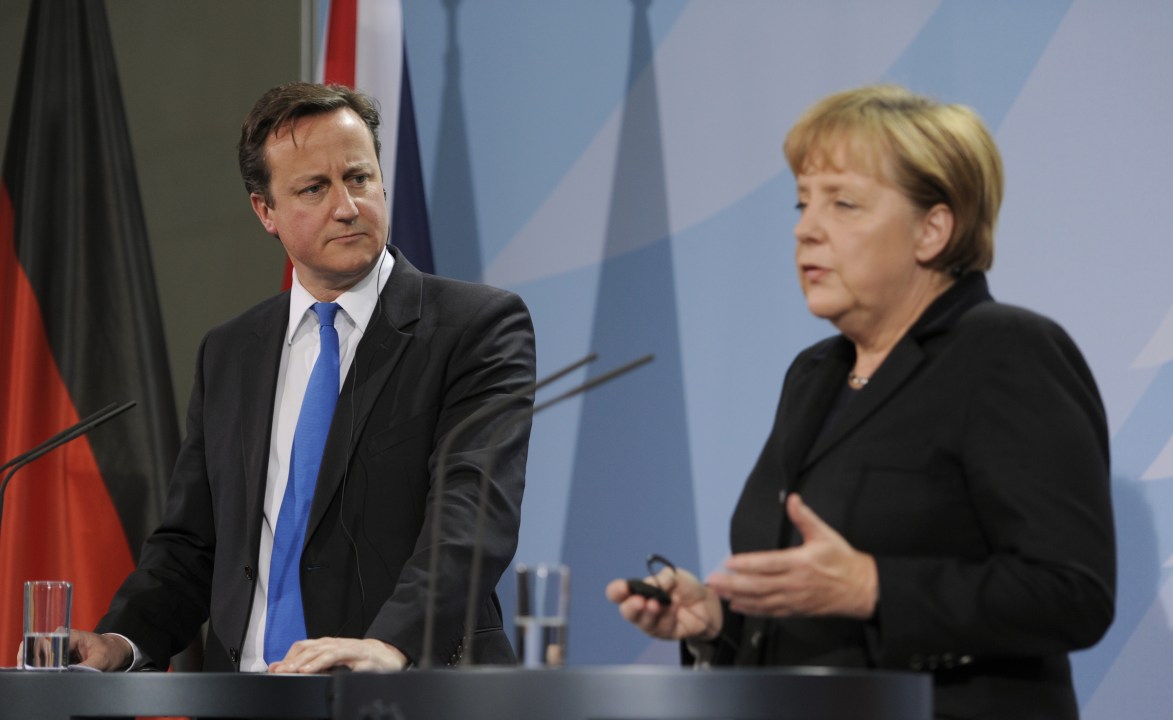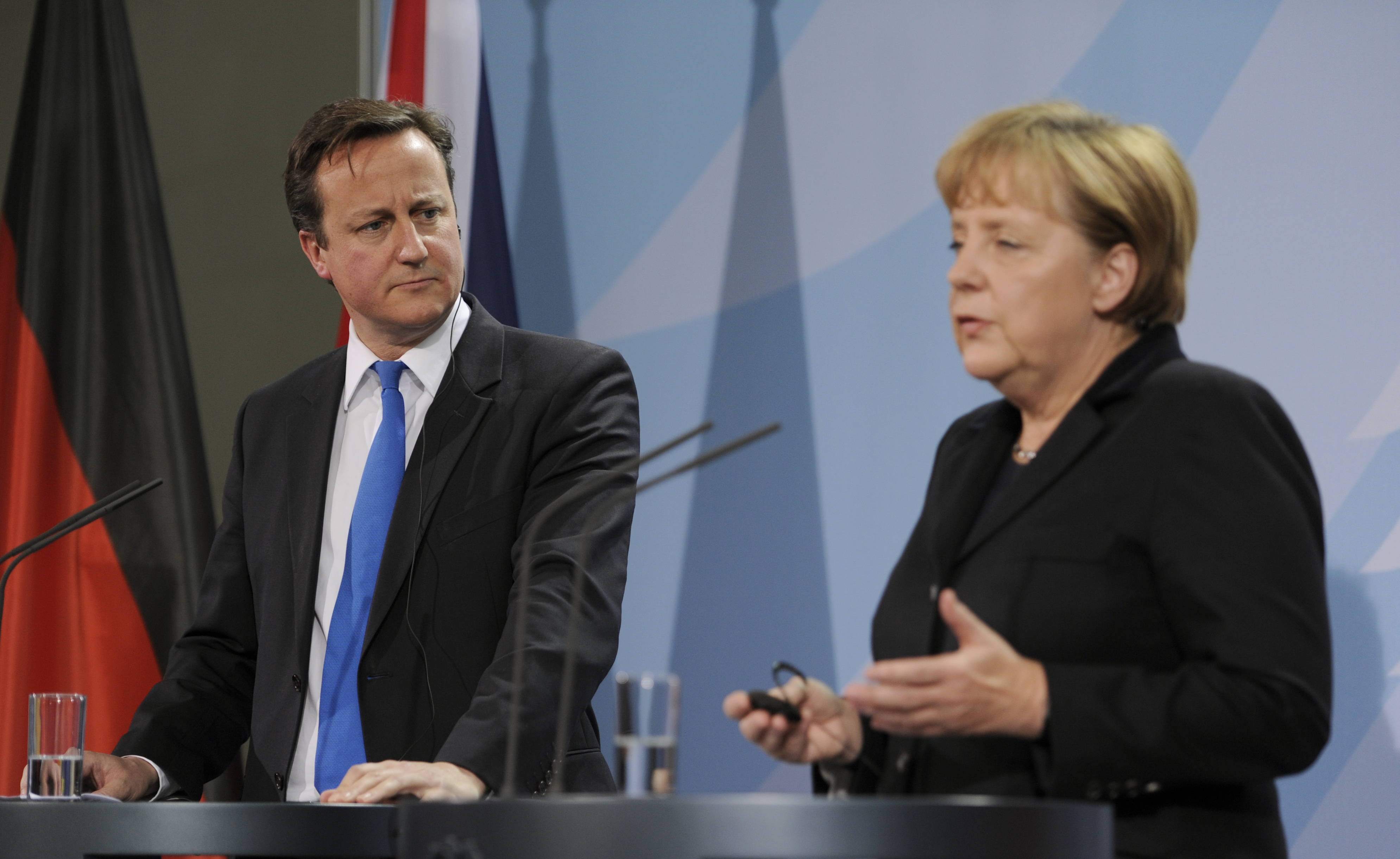 Someone forgot to pack his handbag. We heard yesterday that David Cameron has
agreed to let Merkel pursue full fiscal union – and in return she will… drum roll please… let him repatriate parts of the Working Time Directive. There’s nothing official from Number
10, but the well-informed Ben Brogan suggests this morning that this could well be
Britain’s price for agreeing to Merkel’s deal.
Someone forgot to pack his handbag. We heard yesterday that David Cameron has
agreed to let Merkel pursue full fiscal union – and in return she will… drum roll please… let him repatriate parts of the Working Time Directive. There’s nothing official from Number
10, but the well-informed Ben Brogan suggests this morning that this could well be
Britain’s price for agreeing to Merkel’s deal.
If so, this would be an opportunity squandered on a massive – perhaps historic – scale. Let’s recap. Cameron is in an incredibly powerful position: leading a government which is, in defiance of public opinion, giving £9 billion of overseas aid to EU member states each year. That’s more than we give to all third world countries put together, and more than any country other than Germany. We’re one of the biggest and most gullible paymasters of Europe: surely we can make better demands than this? Especially since relations with the EU are governed by the Lisbon Treaty, on which the British public were promised a referendum. Cameron is on record describing it as ‘wrong’ and William Hague famously said ‘we would not let it rest there’.
Hague never finished this sentence. But did he really mean ‘we would not let it rest there – we will push for partial repatriation of the Working Time Directive’? It’s time we were told. For years, Cameron has refused to level with the British people about just what he wants to achieve from a European Union of which now only a minority – 41 per cent – believe we should be a member. I’m in that minority, by the way, but the issue here is basic honesty. Is this partial WTD release really Cameron’s endgame? Does he feel this is the best he can do in the circumstances? If so, he should say so.
There may be another factor. Cameron has chosen as his negotiator Sir Jon Cunliffe, Brown’s former chief EU adviser. One can have a fair guess at where his sympathies lie. A while back, I was on
BBC Politics Show talking about this with Julian Lewis MP. He had this to say:
This Merkel deal will do little to assuage concerns in parliament. But it’s wider concerns that matter. Reporting of European issues tends to ignore public opinion and portray the subject as a story of Tory splits. The implication is that the Prime Minister is only trying to assuage the swivel-eyed Tories. It is, perhaps, worth reprinting the EU’s own polling showing what the British public think of what’s being done in their name. Those of us who want to save Britain’s EU membership can no longer pretend that ours is a majority position.‘At the moment, we have negotiating for us in Europe Jon Cunliffe as the most senior civil servant – and he was the man who signed us up to the EU-wide bailout. So it’s difficult to see how we’re going to get anything except the managing of ministers’ expectations, splitting the difference. If you want serious repatriation of powers, you need someone who has the confidence of parliament in there negotiating, really trying to bring things back.’









Comments